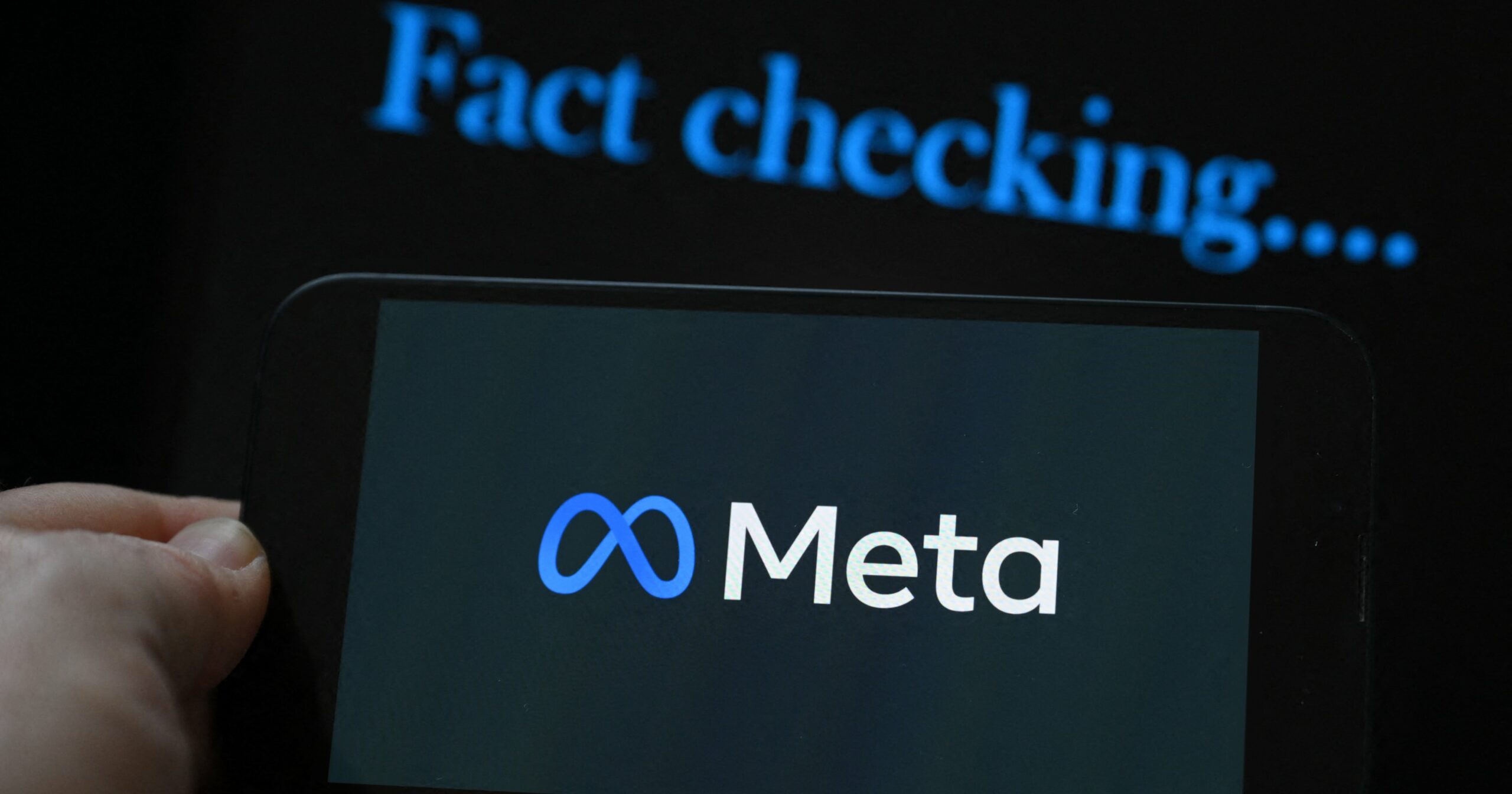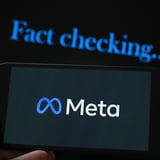I’ll never forget when my mother summoned my quadruplet brothers and me for a family meeting because of what she found in one of our browser histories. I gulped as she asked if we could guess the issue, like a detective zeroing in on her suspect. I was 13, and I felt then there was something terribly wrong with me that must remain secret at all costs. I felt so foolish for risking my existence for the sake of googling “naked men,” which was so innocent despite how perverted and twisted I considered myself for liking their hard abs and hung penises.
“This is it,” I thought, ready for my life to be over. I didn’t quite know what happened to people like me, but I knew they were not a part of society.
I was brought back to this moment when I read about Meta’s new hate speech policies last week. In addition to removing fact-checking moderation, the company that owns Facebook, Instagram, and Threads will “allow allegations of mental illness or abnormality when based on gender or sexual orientation, given political and religious discourse about transgenderism and homosexuality.”
In other words, Meta’s new guidelines normalize calling queerness a mental disorder.
At that moment, at 13, I was saved from the rest of my family, thinking I had one. “I know you’ve been watching Playboy on your computer,” my mother said and turned to one of my brothers, who apparently had been admiring big boobs and asses.
I was 13, and I felt then there was something terribly wrong with me that must remain secret at all costs.
Of course, the rest of us would never admit our horniness to her, so we snickered at the one who got caught and pretended to be grossed out by his behavior. My mother assured us that being curious about women was normal and used it as an opportunity to talk about sex. The situation should’ve appeased my angst; after all, my brothers and I were experiencing the same urges. But it marked the beginning of me conflating my individuality as dangerous and believing myself abnormal.
The writer with his three brothers at 13 years old.
I often think about how different the next few years might’ve been had I not been so diligent about clearing my browser history as if Homeland Security were keeping tabs on me. Would I have been less of a bully in high school, hurling insults before people could notice my own insecurities? Would I have been less of a drunk if I trusted my sober self to be likable? Would my mom have been ready to give me the unconditional love she did when I came out at 20?
Before I found the strength to be honest, the fear of being perceived as gay weighed so heavily on me that it crushed everything else from mattering. I only cared about hiding my secret and being accepted. But the misery grew until it became self-destructive. While my brothers attended Ivy League schools, I pretended to be enrolled, living in a spare room I found online after dropping out of school. By that point, I had failed to spot the early signs of my alcoholism and severe anxiety because I blamed everything on my gayness; after all, it was legally considered a mental disorder in the US until 1973 and wasn’t fully decriminalized until 2003.
I couldn’t escape the ripple effects of my sexual identity being a harbinger of wrongness. And I would’ve spent my entire life running away from myself if I had been expected to “fix” it. At face value, Meta’s new policies are harmful because they promote bullying queerness as OK. But to me, they also present psychological warfare on LGBTQ+ mental health, especially for young people who might suffer from mental illnesses and believe their innate identities are the problem.
Meta is returning to a time when discrimination and stereotyping were the law of the land.
So, while it might feel Meta is abandoning allyship now that it’s no longer profitable, it’s also unraveling all the progress my generation made to destigmatize mental health – and disorders. The past decade has seen countless individuals come forward online with their diagnoses, yet Meta is returning to a time when discrimination and stereotyping were the law of the land. The company’s amended guidelines promote weaponizing mental health as an insult. We’ve seen the deadly consequences of treating queerness like a disorder to be managed, from the suffering at the hands of conversion therapy to the disproportionate amount of LGBTQ+ youth suicides.
As a quadruplet, I’m living proof that you can give a child all the love and traditional parenting in the world, and they’ll still be queer if that’s who they are. My brothers’ straightness should be seen as proof it’s not contagious, so leave the drag queens alone! When I finally came out to my family, it was because I’d hit rock bottom so hard that I felt like I had nothing left to lose. Nowadays, I wouldn’t trade being gay for anything in the world; being part of the LGBTQ+ community feels like a gift. It has also brought me closer to childhood friends I once kept at arm’s length as if I had the stretch powers of Mr. Fantastic from the Fantastic Four.
“Why didn’t you tell me sooner?” was the question my loved ones often asked. The truth? I was afraid they’d see me as mentally unwell. It wasn’t that I doubted their unconditional love but my own ability to exist while being seen as abnormal. I can’t help but think young queer people will be further crushed by the online attacks on their identities, neglecting their mental health out of fear it could be used against them.
Jamie Valentino is a Colombian-born freelance journalist and romance columnist published in the Chicago Tribune, the Houston Chronicle, Men’s Journal, Reader’s Digest UK, Vice, and more. Jamie has worked as a travel correspondent, covering the 2022 World Cup from Argentina, siesta culture in Barcelona, and the underground nightlife scene in Milan.



